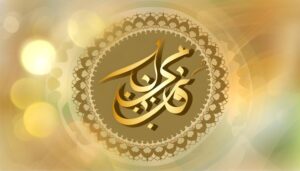Hajra Name Meaning in English
Hajra is an Arabic name derived from the verb 'hajara,' meaning 'to emigrate' or 'to flee.' This name holds historical significance, tracing back to the story of Hagar (Hajra), embodying themes of resilience and transformation. Typically used as a feminine name, it retains phonetic appeal, marked by the consonantal roots H-J-R.
Widely embraced in Muslim families, Hajra symbolizes endurance through adversity. Its popularity has fluctuated, influenced by cultural, religious, and social factors.
Notable namesakes include Hajra Khan and Hajra Masroor, demonstrating the name's broad cultural resonance. To uncover more layers of this name's rich history and usage, further details await.

Key Takeaways
- Hajra means "to emigrate" or "to flee" in Arabic, symbolizing resilience and transformation.
- The name is historically and culturally significant, particularly within Arabic-speaking and Muslim communities.
- Hajra is associated with the story of Hagar, embodying endurance and strength.
- It holds a feminine form, rooted in the Arabic consonantal roots H-J-R.
- The name enjoys broad acceptance and integration due to its phonetic simplicity and cultural resonance.
Etymology and Origin
The name Hajra, rooted in Arabic etymology, originates from the verb 'hajara,' which means 'to emigrate' or 'to flee.' This nomenclature is historically significant, tracing back to pre-Islamic times and holds a deep connection to the concept of migration.
Semantically, the term embodies notions of movement and change, resonating within various Arabic dialects and classical literature. The linguistic structure of 'Hajra' presents a feminine form, commonly used in naming conventions. Its phonetic composition is straightforward, marked by the consonantal roots H-J-R, which are fundamental in Semitic languages.
The historical evolution of the name reflects its entrenched cultural relevance, highlighting its enduring presence in the lexicon of Arabic-speaking communities.
Cultural Significance
Embodying profound cultural resonance, the name Hajra signifies resilience and transformation within Arabic-speaking communities. Historically, Hajra is associated with the story of Hagar (Hajra in Arabic), the wife of Prophet Ibrahim and mother of Prophet Ismail, symbolizing endurance amidst adversity. Linguistically, the name is derived from the Arabic root "H-J-R," meaning "to emigrate" or "to abandon," reflecting themes of migration and renewal.
| Element | Significance | Contextual Example |
|---|---|---|
| Historical | Symbol of perseverance | Hagar's journey |
| Linguistic | Root "H-J-R" | Emigration |
| Cultural | Endurance and transformation | Islamic history |
| Modern Usage | Popular in Muslim families | Name for daughters |
This cultural heritage imbues the name Hajra with an enduring legacy across generations.
Popularity Over Time
Throughout history, the popularity of the name Hajra has experienced fluctuations influenced by cultural, religious, and social factors. Derived from the Arabic language, Hajra holds significant Islamic heritage, often referencing Hagar, the revered matriarch in Islamic tradition.
During periods of heightened religious observance, the name's usage surged, reflecting its spiritual resonance. Conversely, in eras marked by secularization or Western influence, its prevalence waned.
Linguistically, Hajra's phonetic appeal and ease of pronunciation have sustained its usage across diverse Arabic-speaking regions. Additionally, the migration of Muslim communities has introduced the name to broader global contexts, affecting its demographic trends.
In contemporary times, the name continues to reflect both personal and collective identities, adapting to evolving cultural landscapes.
Famous Namesakes
Prominent individuals named Hajra have contributed substantially to various fields, underscoring the name's rich cultural and historical legacy.
One notable namesake is Hajra Khan, a distinguished Pakistani footballer who has captained the national women's team, symbolizing empowerment and athletic excellence.
In literature, Hajra Masroor stands out as an influential Urdu writer whose works explore social issues and women's rights, resonating deeply within South Asian literary traditions.
Additionally, Hajra Waheed, a contemporary Canadian artist of South Asian descent, investigates themes of displacement and identity through multimedia art.
These figures exemplify the diverse arenas—sports, literature, and art—where the name Hajra has left an indelible mark, reflecting its multifaceted significance across cultures and generations.
Modern Usage
In contemporary times, the name Hajra retains its cultural resonance while increasingly being embraced across various regions and communities. Historically rooted in Islamic tradition, the name has transcended its origins, reflecting a broader acceptance and integration within diverse linguistic and cultural contexts.
Modern usage of Hajra underscores its adaptability, as it finds a place in both Eastern and Western naming conventions. Linguistically, the name Hajra maintains its phonetic simplicity, making it accessible and appealing. The name's rich historical connotations and spiritual significance contribute to its sustained popularity.
Essentially, Hajra exemplifies a harmonious blend of tradition and modernity, resonating with parents seeking meaningful names that honor heritage while fitting seamlessly into contemporary settings.
Conclusion
The name Hajra, rich in etymology and cultural significance, has traversed centuries, reflecting its evolving popularity and modern usage.
Historically rooted in Arabic, it signifies migration or journey, encapsulating a sense of movement and change. Prominent figures bearing this name have contributed to its enduring appeal.
As with many names, 'a name is a reflection of identity,' encapsulating personal and cultural heritage. Hajra remains a demonstration of linguistic and cultural continuity through time.






